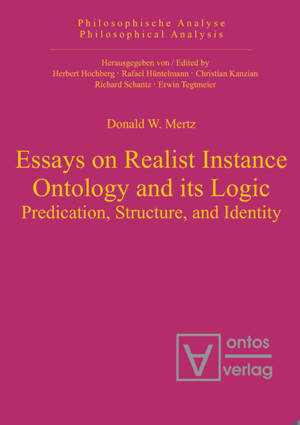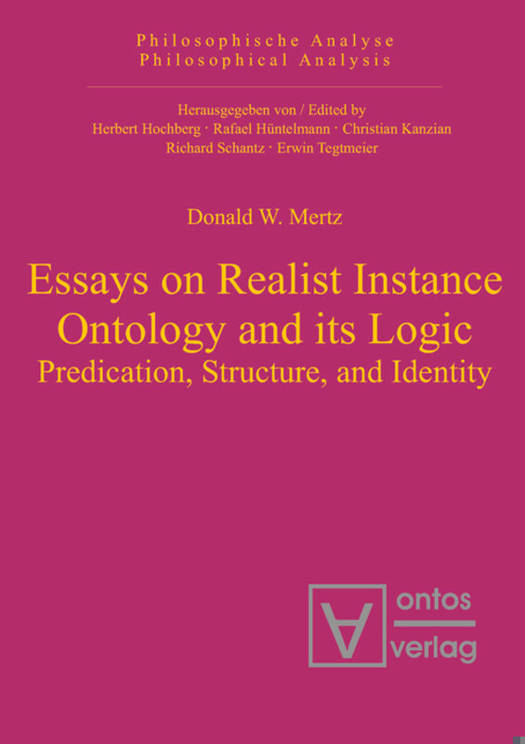
- Retrait gratuit dans votre magasin Club
- 7.000.000 titres dans notre catalogue
- Payer en toute sécurité
- Toujours un magasin près de chez vous
- Retrait gratuit dans votre magasin Club
- 7.000.0000 titres dans notre catalogue
- Payer en toute sécurité
- Toujours un magasin près de chez vous
Description
Structure or system is a ubiquitous and uneliminable feature of all our experience and theory, and requires an ontological analysis. The essays collected in this volume provide an account of structure founded upon the proper analysis of polyadic relations as the irreducible and defining elements of structure. It is argued that polyadic relations are ontic predicates in the insightful sense of intension-determined agent-combinators, monadic properties being the limiting and historically misleading case. This assay of ontic predicates has a number of powerful explanatory implications, including fundamentally: providing ontology with a principium individuationis, demonstrating the perennial theory that properties and relations are individuated as unit attributes or 'instances', giving content to the ontology of facts or states of affairs, and providing a means to precisely differentiate identity from indiscernibility. The differentiation of the unrepeatable combinatorial and repeatable intension aspects of ontic predicates makes it possible to properly diagnose and disarm the classis Bradley Regress Argument aimed against attributes and universals, an argument that trades on confusing these aspects. It is argued that these two aspects of ontic predicates form a 'composite simple', an explanation that sheds light on the nature and necessity of the medieval formal distinction, e.g., the distinctio formalis a parte rei of Scotus. Following from this analysis of ontic predication there is given a number of principles delineating realist instance ontology, together with a critique of both nominalistic trope theory and modern revivals of Aristotle's instance ontology of the Categories. It is shown how the resulting theory of facts can, via 'horizontal' and 'vertical' composition, account for all the hierarchical structuring of our experience and theory, and, importantly, how this can rest upon an atomic ontic level composed of only dependent ontic predicates. The latter is a desideratum for the proposed 'Structural Realism' ontology for micro-physics where at its lowest level the physical is said to be totally relational/structural. Nullified is the classic and insidious assumption that dependent entities presuppose a class of independent substrata or 'substances', and with this any pressure to admit 'bare particulars' and intensionless relations or 'ties'. The logic inherent in realist instance ontology-termed 'PPL'-is formalized in detail and given a consistency proof. Demonstrated is the logic's power to distinguish legitimate from illegitimate impredicative definitions, and in this how it provides a general solution to the classic self-referential paradoxes. PPL corresponds to Gödel's programmatic 'Theory of Concepts'. The last essay, not previously published, provides a detailed differentiation of identity from indiscernibility, preliminary to which is given an explanation of in what sense a predicate logic presupposes an ontology of predication. The principles needed for the differentiation have the significant implication (e.g., for the foundations of mathematics) of implying an infinity of logical entities, viz., instances of the identity relation.
Spécifications
Parties prenantes
- Auteur(s) :
- Editeur:
Contenu
- Nombre de pages :
- 374
- Langue:
- Anglais
- Collection :
- Tome:
- n° 14
Caractéristiques
- EAN:
- 9783110333046
- Date de parution :
- 01-07-15
- Format:
- Livre relié
- Format numérique:
- Genaaid
- Dimensions :
- 152 mm x 229 mm
- Poids :
- 630 g

Les avis
Nous publions uniquement les avis qui respectent les conditions requises. Consultez nos conditions pour les avis.






